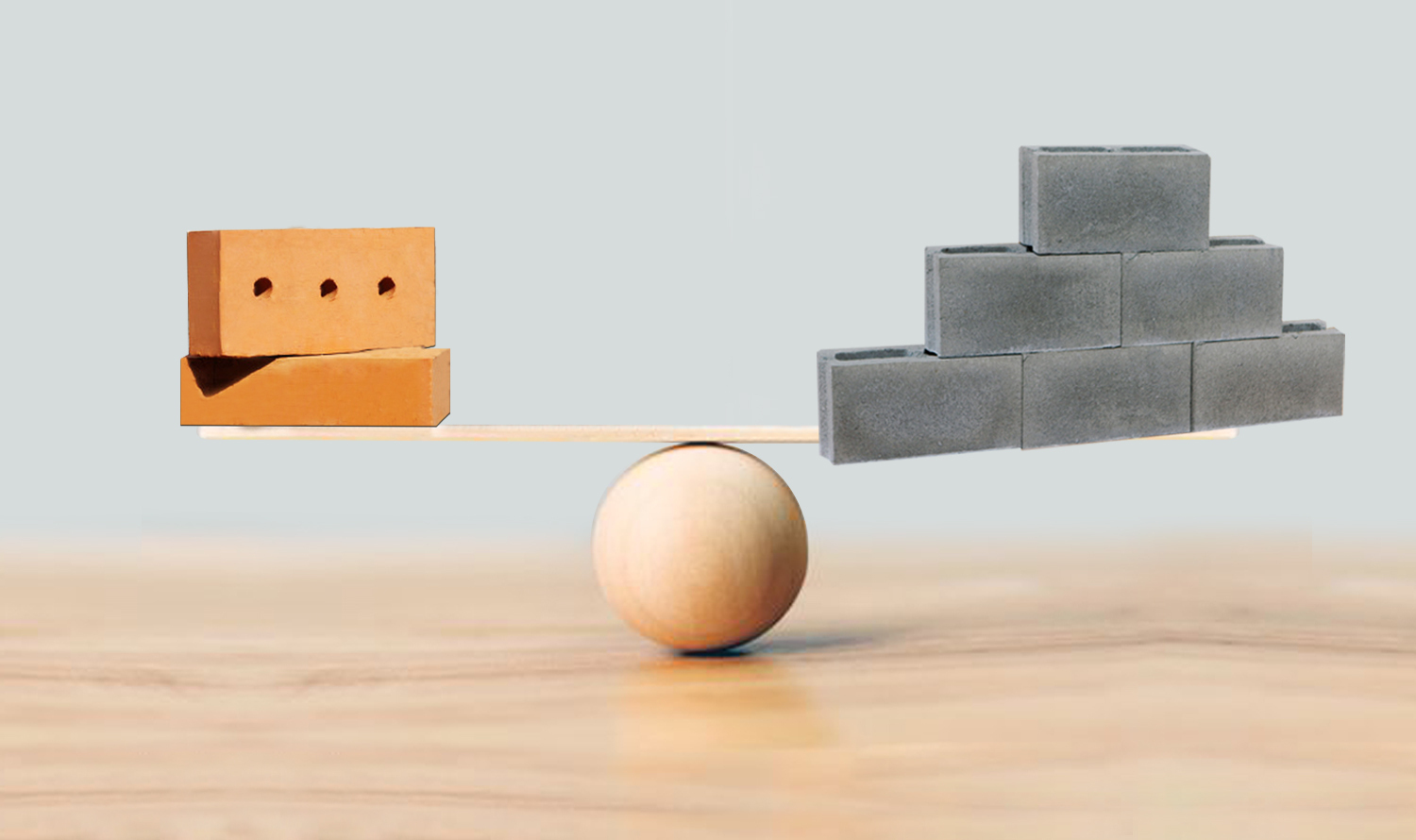
Concrete Blocks vs Traditional Bricks: Which is Better?
The quality of building products used during construction shapes the structure, durability and strength of a building. It is more than just an investment, it is a pathway to a safe and secure future for the residents. While bricks are largely used in construction, the innovative concrete blocks have taken the construction industry by storm thanks to its numerous advantages.
This blog is an attempt to dissect each aspect of concrete blocks and traditional bricks to help you make an informed decision when constructing your dream home. Read on to find out which product might be suitable for you!
Traditional Red Bricks
The red bricks you see strewn around in our country have been used for decades, partly because they are cheap and more readily available. It is primarily formed from clay, alumina, iron oxide, sand and other minerals, and can come in modular and non-modular sizes. While clay is naturally available, obtaining it depletes soil quality, and manufacturing bricks is an extremely hazardous process for the environment, since more carbon dioxide is produced. It consumes more water in the curing process and requires more mortar. This means that during the rainy season or humid days, the weather can easily affect the mineral content and chemical nature. The temperature at which it is burnt can also affect its shape and durability. From brick manufacturing to actual construction, the process is time-consuming. It is safe to say that newer and more innovative products are required in this day and age, and as a result concrete blocks were born.
Concrete Blocks
Concrete blocks are a game-changer in the construction industry and have replaced bricks to a great extent. There are plenty of reasons. First of all, it is machine-made unlike bricks, which means temperature, change of seasons and weather, other external factors cannot affect its production or quality. As a result, each block is the same as the next one. The smooth and consistent flat finish leads to less use of mortar, unlike bricks which have uneven surface, are more prone to water absorption, and require more mortar. Since it is machine-made, its production has less environmental impact. The blocks are shaped in a manner so that when placed next to each other, they can form an interlocking pattern, making the construction process much easier! Saving time and labor costs, concrete blocks also help build a soundproof and resilient structure, much lighter than a building completely made from bricks. So bricks might be cheap, but concrete blocks are far more cost-effective because of these features. In a building made of these blocks, your room would be cool in summer and warm in winter thanks to its excellent thermal insulation properties. Last but not least, concrete blocks are extremely strong, resulting in fantastic earthquake-resistant superstructures.
Concrete blocks hold a plethora of advantages over bricks, but the best aspect is its flexibility. You can create a range of structures apart from residential and commercial buildings, for example, parking lots, sidewalk, walkways, industrial sites, basement, pier, partition walls, and so much more. You can even use it for landscaping and architectural purposes. Overall, it is an excellent building product to work with. Once you use it, you will never go back to bricks again!





0 comments
Write a comment